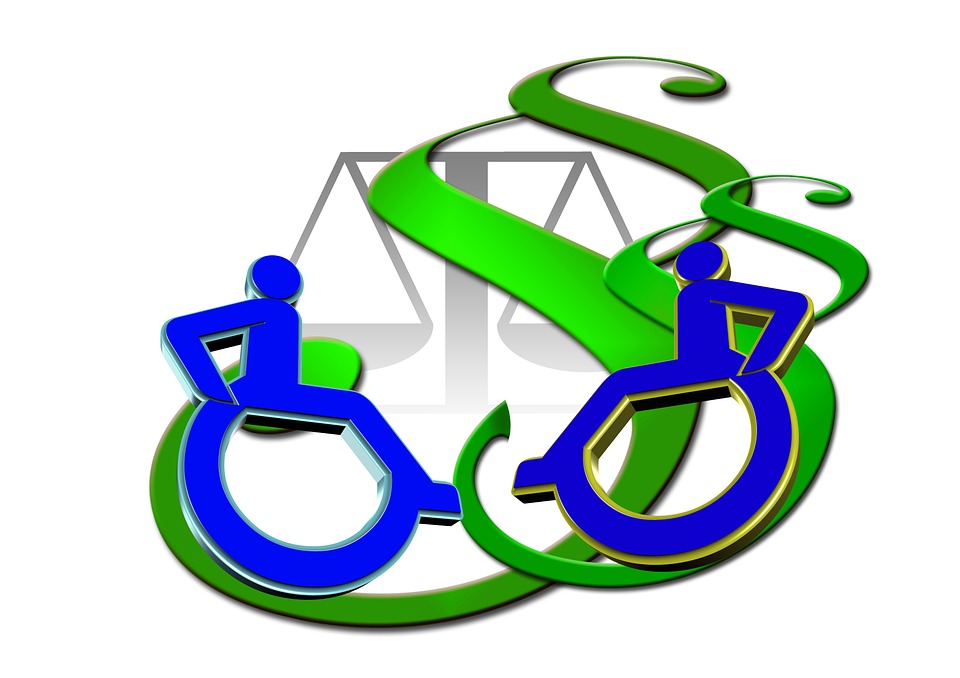The concept of a smart contract sounds futuristic and foolproof—digital agreements that execute themselves once pre-defined conditions are met, all on a secure blockchain. But the reality isn’t always as sleek as the sales pitch. As more industries adopt smart contracts for everything from real estate to insurance claims, the legal implications of what happens when they go wrong are becoming increasingly important.
Who’s responsible when the code executes incorrectly or a vulnerability is exploited? Can a piece of code be held liable? These are no longer theoretical questions. They’re real legal concerns that courts, developers, and users are grappling with today.
Code Is Law… Until It Isn’t
One of the guiding philosophies behind smart contracts is the idea that “code is law.” In other words, whatever the code says, goes. This works fine when the code performs exactly as intended. But in practice, coding errors, logic flaws, or unforeseen interactions can lead to significant financial losses or breaches of trust. When the code doesn’t reflect the true intent of the agreement, the people affected often turn to traditional legal systems for recourse. This is where things get murky, as courts must interpret what was meant vs. what was coded.
Who Gets Sued When Code Fails?
Unlike traditional contracts, where you can usually point to a party who breached the terms, smart contracts blur those lines. Is it the developer who wrote the code? Is the platform hosting it? The user who deployed it? There have already been cases where courts had to decide whether developers are legally accountable for poorly written or malicious smart contracts. The outcomes often depend on the jurisdiction and the clarity of the terms involved, but one thing is clear: someone almost always ends up responsible—even if it wasn’t their intent.

Jurisdictional Nightmares
Smart contracts live on decentralized networks, often hosted across borders on nodes scattered around the globe. This raises another major issue: jurisdiction. If a contract is created in one country, executed on a blockchain in another, and affects users in five more, whose laws apply? The decentralized nature of blockchain technology makes it difficult for traditional legal frameworks to catch up. Different regions are beginning to adopt rules and interpretations, but consistency is still a long way off.
Bugs, Exploits, and Malicious Actors
Even if a smart contract works “correctly” according to its code, that doesn’t mean it’s functioning ethically—or even legally. Take the infamous DAO hack in 2016, where a perfectly legal (by code) withdrawal drained millions of dollars from the Ethereum blockchain. The network had to implement a controversial hard fork to reverse the damage. In such cases, the blame often falls on developers for failing to anticipate vulnerabilities, but this opens up a Pandora’s box of legal questions. Should we expect developers to foresee every possible exploit? Or should users bear some of the risk?
Moving Toward Legal Hybrid Contracts
The future likely lies in a hybrid model that combines traditional legal contracts with smart code. These setups allow …


















 One of the most fundamental rights you have when confronted by law enforcement is the right to remain silent. This means you are not obligated to answer any questions that may incriminate you. According to minnesota criminal defense attorneys, exercising your right to remain silent is a strategic move that can prevent unintended self-incrimination. You can politely and firmly assert your right to remain silent by saying something like, “I choose to remain silent until I consult with my attorney.”
One of the most fundamental rights you have when confronted by law enforcement is the right to remain silent. This means you are not obligated to answer any questions that may incriminate you. According to minnesota criminal defense attorneys, exercising your right to remain silent is a strategic move that can prevent unintended self-incrimination. You can politely and firmly assert your right to remain silent by saying something like, “I choose to remain silent until I consult with my attorney.” The right to a fair and speedy trial is enshrined in the Constitution to prevent undue delays that could compromise your defense. It ensures that you are not left in legal limbo and have the opportunity to present your case promptly. Work closely with your attorney to navigate the legal process efficiently. The Fourth Amendment protects you from unreasonable searches and seizures by law enforcement. This means that, in most cases, they cannot search your person, home, or belongings without a warrant or probable cause. If your rights are violated, evidence obtained unlawfully may be excluded from trial.
The right to a fair and speedy trial is enshrined in the Constitution to prevent undue delays that could compromise your defense. It ensures that you are not left in legal limbo and have the opportunity to present your case promptly. Work closely with your attorney to navigate the legal process efficiently. The Fourth Amendment protects you from unreasonable searches and seizures by law enforcement. This means that, in most cases, they cannot search your person, home, or belongings without a warrant or probable cause. If your rights are violated, evidence obtained unlawfully may be excluded from trial.








 When it comes to personal injury cases, having the right legal representation can make all the difference. Hiring the best lawyer for your case increases your chances of winning. First and foremost, look for a lawyer specializing in personal injury law. This area of law is complex and ever-changing, so having an attorney with expertise in this field will give you an advantage. They will have extensive knowledge of relevant laws and regulations that could impact your case. Experience matters, too. An experienced attorney will know how to navigate the legal process efficiently and effectively, ensuring no stone is left unturned. Lawyer in Henderson is known to have 40 years of experience, so consider checking them out.
When it comes to personal injury cases, having the right legal representation can make all the difference. Hiring the best lawyer for your case increases your chances of winning. First and foremost, look for a lawyer specializing in personal injury law. This area of law is complex and ever-changing, so having an attorney with expertise in this field will give you an advantage. They will have extensive knowledge of relevant laws and regulations that could impact your case. Experience matters, too. An experienced attorney will know how to navigate the legal process efficiently and effectively, ensuring no stone is left unturned. Lawyer in Henderson is known to have 40 years of experience, so consider checking them out.
 Things can go wrong quickly when it comes to copyrighted music. Sometimes, the one who stole your music can even register it as their own. Before it gets worse, you want to make sure that you’re in the right hands. That’s why hiring a copyright lawyer is essential. They’ll be able to provide legal advice and guide you through the process of taking action against those who have stolen your music. On top of that, they will also be able to help you register your music for copyright protection.
Things can go wrong quickly when it comes to copyrighted music. Sometimes, the one who stole your music can even register it as their own. Before it gets worse, you want to make sure that you’re in the right hands. That’s why hiring a copyright lawyer is essential. They’ll be able to provide legal advice and guide you through the process of taking action against those who have stolen your music. On top of that, they will also be able to help you register your music for copyright protection. If you want to ensure that your rights are protected and that justice is served, then filing a copyright infringement suit is the best way to go. Note that filing a lawsuit can be expensive, so ensure you have all your documents in order before taking this step. You will also need to provide evidence of the unauthorized use of your music, as well as prove that it was originally yours and not someone else’s. In fact, the clearer you are about the evidence, the better. By doing this, your lawyer will be able to make a stronger case for you and help you get justice.
If you want to ensure that your rights are protected and that justice is served, then filing a copyright infringement suit is the best way to go. Note that filing a lawsuit can be expensive, so ensure you have all your documents in order before taking this step. You will also need to provide evidence of the unauthorized use of your music, as well as prove that it was originally yours and not someone else’s. In fact, the clearer you are about the evidence, the better. By doing this, your lawyer will be able to make a stronger case for you and help you get justice. Sometimes, it’s possible that the person who stole your music might not agree with your claims. In such cases, you can always try to negotiate or settle out of court. This means that both parties come to an agreement without having to take it to court and resolve the issue without any further legal action. Of course, this depends on both parties, so ensure that whatever is agreed upon is documented in writing for future reference. Ultimately, your music is your own asset. …
Sometimes, it’s possible that the person who stole your music might not agree with your claims. In such cases, you can always try to negotiate or settle out of court. This means that both parties come to an agreement without having to take it to court and resolve the issue without any further legal action. Of course, this depends on both parties, so ensure that whatever is agreed upon is documented in writing for future reference. Ultimately, your music is your own asset. …
 The first set of business law is the Contract Law. This includes any agreement between two or more parties that contain promises and consideration, as well as any agreements regarding the sale of goods or services. A contract must be enforceable, meaning that all parties involved understand and agree to its terms, for it to be valid. If one party does not keep their promises or there is a disagreement about the terms of the agreement, a lawsuit may result. Note that all contracts do not require signatures. They can also be verbal or implied from the conduct of both parties.
The first set of business law is the Contract Law. This includes any agreement between two or more parties that contain promises and consideration, as well as any agreements regarding the sale of goods or services. A contract must be enforceable, meaning that all parties involved understand and agree to its terms, for it to be valid. If one party does not keep their promises or there is a disagreement about the terms of the agreement, a lawsuit may result. Note that all contracts do not require signatures. They can also be verbal or implied from the conduct of both parties.


 Do not make the mistake of hiring a lawyer who does not specialize in family law. A lawyer specializing in family law will have the knowledge and experience to help you through your divorce. By hiring a family law specialist, you can be assured that you are getting the best possible legal representation. Most people try to negotiate without a lawyer, which is a big mistake. If you have children, you will want to make sure that you hire a lawyer who is familiar with custody and visitation issues. If you face a contested divorce, your lawyer will need to be prepared to fight for what is best for you and your children.
Do not make the mistake of hiring a lawyer who does not specialize in family law. A lawyer specializing in family law will have the knowledge and experience to help you through your divorce. By hiring a family law specialist, you can be assured that you are getting the best possible legal representation. Most people try to negotiate without a lawyer, which is a big mistake. If you have children, you will want to make sure that you hire a lawyer who is familiar with custody and visitation issues. If you face a contested divorce, your lawyer will need to be prepared to fight for what is best for you and your children. You should also never sign anything without reading it first. This includes separation agreements, divorce papers, and any other legal documents you may be presented with during the divorce process. It’s important to remember that just because your spouse is asking for something doesn’t mean you have to give it to them. You have the right to negotiate and fight for what you believe is best for you and your children. If you’re not sure what something means, or if you have any other questions about the documents you’re being asked to sign, don’t hesitate to speak with a lawyer. They can help explain everything in detail and answer any questions you may have.
You should also never sign anything without reading it first. This includes separation agreements, divorce papers, and any other legal documents you may be presented with during the divorce process. It’s important to remember that just because your spouse is asking for something doesn’t mean you have to give it to them. You have the right to negotiate and fight for what you believe is best for you and your children. If you’re not sure what something means, or if you have any other questions about the documents you’re being asked to sign, don’t hesitate to speak with a lawyer. They can help explain everything in detail and answer any questions you may have.
 One of the essential factors you should consider is the reputation of a lawyer. The reputation of a lawyer plays a significant role and should not be ignored. Take some time and research what others are saying about a lawyer before making your final decision. You can speak to those who may be familiar with a lawyer, like their colleagues or clients they have worked with in the past.
One of the essential factors you should consider is the reputation of a lawyer. The reputation of a lawyer plays a significant role and should not be ignored. Take some time and research what others are saying about a lawyer before making your final decision. You can speak to those who may be familiar with a lawyer, like their colleagues or clients they have worked with in the past. Law tends to be a vast domain; this has made many lawyers specialize in a specific field. When choosing a lawyer for your company, you should consider the field a lawyer is specialized in. Only choose a lawyer that has specialized in the type of services your business needs.
Law tends to be a vast domain; this has made many lawyers specialize in a specific field. When choosing a lawyer for your company, you should consider the field a lawyer is specialized in. Only choose a lawyer that has specialized in the type of services your business needs.



 Nowadays, every attorney wants to provide useful information about his achievements, successful cases, and activity. It is a good idea to have a relevant, informative, and complete profile that is appreciated. Ensure you check the past activity and if past clients are happy with the results. There are various professional websites that allow rating systems. A lawyer with several reviews and backed up other lawyers is likely to be the one you are looking for.
Nowadays, every attorney wants to provide useful information about his achievements, successful cases, and activity. It is a good idea to have a relevant, informative, and complete profile that is appreciated. Ensure you check the past activity and if past clients are happy with the results. There are various professional websites that allow rating systems. A lawyer with several reviews and backed up other lawyers is likely to be the one you are looking for. It is quite hurting when you discover that the car you purchased with your hard-earned money is a lemon. Your investment has turned out to become a mechanical albatross that costs you a lot of money and time with every repair. If your car is simply a lemon, then you have a legal case. Then you may benefit from the rights specified by your state. For instance, you can have the dealer or manufacturer replace your car with a similar one. Another option is to force the manufacturer to re-buy the car at the original sale price. That includes car registration fees, taxes, and finance charges.…
It is quite hurting when you discover that the car you purchased with your hard-earned money is a lemon. Your investment has turned out to become a mechanical albatross that costs you a lot of money and time with every repair. If your car is simply a lemon, then you have a legal case. Then you may benefit from the rights specified by your state. For instance, you can have the dealer or manufacturer replace your car with a similar one. Another option is to force the manufacturer to re-buy the car at the original sale price. That includes car registration fees, taxes, and finance charges.…



 In a criminal case, the rules on how to present evidence can be quite complex. This also applies in how one can ask questions during the cross-examination process. As such, hiring a criminal lawyer means that you will only ask relevant questions. Also, their experience also helps them put across question s that would have otherwise been not allowed intelligently without any objection from the prosecution.
In a criminal case, the rules on how to present evidence can be quite complex. This also applies in how one can ask questions during the cross-examination process. As such, hiring a criminal lawyer means that you will only ask relevant questions. Also, their experience also helps them put across question s that would have otherwise been not allowed intelligently without any objection from the prosecution.
 face during the process. We have also seen some people in such scenarios get their cases overturned. Some lawyers can point out instances when police officers or arresting authorities did not observe the law in the process leading to your arrest, and this may see your charges get withdrawn. Getting a good drug crimes attorney is essential when you are facing drug-related charges. Here is how you can pick the best.
face during the process. We have also seen some people in such scenarios get their cases overturned. Some lawyers can point out instances when police officers or arresting authorities did not observe the law in the process leading to your arrest, and this may see your charges get withdrawn. Getting a good drug crimes attorney is essential when you are facing drug-related charges. Here is how you can pick the best. have had the chance of interacting or working with such attorneys. This will give you some people you can pick. One can also visit different online sites and look for the top-rated lawyers in their area.…
have had the chance of interacting or working with such attorneys. This will give you some people you can pick. One can also visit different online sites and look for the top-rated lawyers in their area.…







 Talk to them
Talk to them
 Now, if you get involved in a car accident, it’s mandatory for you to seek immediate medical attention. Once you have received medical attention, it’s your responsibility to collect as much useful data as possible from the eyewitnesses, passengers, and other drivers involved in the accident. The data collected must include names of eyewitnesses, their contact numbers, and addresses at all cost. At the same time, it’s crucial to note the magnitude of your injury along with the degree of vehicle damage occurred during the accident. Next, it’s essential to report the incident to the nearest police station.
Now, if you get involved in a car accident, it’s mandatory for you to seek immediate medical attention. Once you have received medical attention, it’s your responsibility to collect as much useful data as possible from the eyewitnesses, passengers, and other drivers involved in the accident. The data collected must include names of eyewitnesses, their contact numbers, and addresses at all cost. At the same time, it’s crucial to note the magnitude of your injury along with the degree of vehicle damage occurred during the accident. Next, it’s essential to report the incident to the nearest police station. Your lawyer should be licensed for practicing law. This is because the law for personal injury claim is different to some extent in each and every country. Always take references from friends, family members, and people residing seriously. It will help you to analyze the track records of the lawyers clearly. Moreover, you’ll also be free from the hassle of conducting a routine background check on your
Your lawyer should be licensed for practicing law. This is because the law for personal injury claim is different to some extent in each and every country. Always take references from friends, family members, and people residing seriously. It will help you to analyze the track records of the lawyers clearly. Moreover, you’ll also be free from the hassle of conducting a routine background check on your 
 One will require hiring the services of the best legal advisor during the period of purchasing or selling his or her property. With the right skills, knowledge and experience relating to real estate will be able to advise an individual accordingly to make the best decision and deals during the buying or selling period.
One will require hiring the services of the best legal advisor during the period of purchasing or selling his or her property. With the right skills, knowledge and experience relating to real estate will be able to advise an individual accordingly to make the best decision and deals during the buying or selling period. Corporate organizations usually hire the services of a corporate lawyer before dealing or signing any form of contract with another firm. The deal papers are drafted by them and enlighten the concerned parties on the advantages and disadvantages existing.…
Corporate organizations usually hire the services of a corporate lawyer before dealing or signing any form of contract with another firm. The deal papers are drafted by them and enlighten the concerned parties on the advantages and disadvantages existing.…

 Rates differ from one attorney to the other. Different attorneys will charge different fees and will have different retainer conditions. It is good to look at your budget and know what you want, how important is the lawyers’ service to you and the outcome and desired results. Some lawyers will charge more because of reputation and a proven track record.
Rates differ from one attorney to the other. Different attorneys will charge different fees and will have different retainer conditions. It is good to look at your budget and know what you want, how important is the lawyers’ service to you and the outcome and desired results. Some lawyers will charge more because of reputation and a proven track record.
 However, in most instances, court cases tend to take longer than they should be. For you to have your case addressed with the urgency, it deserves it will be essential to hire a mesothelioma lawyer who will present the case to court. The lawyer will handle t with urgency, and you will have the case concluded in the shortest time possible. Similarly, you will receive your compensation immediately your case has been finished.
However, in most instances, court cases tend to take longer than they should be. For you to have your case addressed with the urgency, it deserves it will be essential to hire a mesothelioma lawyer who will present the case to court. The lawyer will handle t with urgency, and you will have the case concluded in the shortest time possible. Similarly, you will receive your compensation immediately your case has been finished. You may think that defending your mesothelioma case will yield the results you need. However, this is not the case because you may end up losing a case you could have worn when you hired a lawyer. Hiring a mesothelioma lawyer will benefit you significantly because you will be able to increase the chances of your case taking a good path. An experienced asbestos lawyer will ensure you win in your case because he or she will use the expertise gained in favor of your case.
You may think that defending your mesothelioma case will yield the results you need. However, this is not the case because you may end up losing a case you could have worn when you hired a lawyer. Hiring a mesothelioma lawyer will benefit you significantly because you will be able to increase the chances of your case taking a good path. An experienced asbestos lawyer will ensure you win in your case because he or she will use the expertise gained in favor of your case.
 The first thing you need to know if you are aspiring to practice law at a future time in your life is that you need to first get a bachelor’s degree from a recognized institution of higher learning. At this level, you will cover the basics of law in disciplines such English, social science, political science and history. However, some school will offer you some pre-law subjects
The first thing you need to know if you are aspiring to practice law at a future time in your life is that you need to first get a bachelor’s degree from a recognized institution of higher learning. At this level, you will cover the basics of law in disciplines such English, social science, political science and history. However, some school will offer you some pre-law subjects While continuing with you studies participate in mock trials that in many cases are hosted by schools or lawyers’ offices
While continuing with you studies participate in mock trials that in many cases are hosted by schools or lawyers’ offices
 Some people think that hiring a lawyer is just an additional expense. Some even assume that they know as much as an attorney does. But this should not be your attitude if you got injured. Also, do not think that just because you are the victim, you are already entitled to full compensation. But take note that there is also a so-called contributory negligence, which means that if there was also negligence on your part, then you won’t be able to get full benefits. All the technicalities of such issues will be explained to you by a knowledgeable lawyer. This way, you would know where to stand. Similarly, he or she will look at all the possible claims that you are entitled to.
Some people think that hiring a lawyer is just an additional expense. Some even assume that they know as much as an attorney does. But this should not be your attitude if you got injured. Also, do not think that just because you are the victim, you are already entitled to full compensation. But take note that there is also a so-called contributory negligence, which means that if there was also negligence on your part, then you won’t be able to get full benefits. All the technicalities of such issues will be explained to you by a knowledgeable lawyer. This way, you would know where to stand. Similarly, he or she will look at all the possible claims that you are entitled to. One of the biggest roles of a personal injury attorney is to go to court and represent you, especially in cases wherein you are incapable of appearing before the court due to the severity of your injuries. Once the case goes to court, the insurance adjusters will be obliged to give you the compensation that you righteously deserve.…
One of the biggest roles of a personal injury attorney is to go to court and represent you, especially in cases wherein you are incapable of appearing before the court due to the severity of your injuries. Once the case goes to court, the insurance adjusters will be obliged to give you the compensation that you righteously deserve.…
 Hiring a competent attorney is one of the most important things that you can do as far as divorce is concerned. There are many men out there who are being taken advantage of simply because they do not hire competent lawyers or the even do not see the need of hiring one. You need to understand that for you to successively get out the divorce case, you need to find someone who is well conversant with matters related to divorce laws. Always remember that the division of property is a serious issue that needs to be dealt with accordingly.
Hiring a competent attorney is one of the most important things that you can do as far as divorce is concerned. There are many men out there who are being taken advantage of simply because they do not hire competent lawyers or the even do not see the need of hiring one. You need to understand that for you to successively get out the divorce case, you need to find someone who is well conversant with matters related to divorce laws. Always remember that the division of property is a serious issue that needs to be dealt with accordingly. Sometimes anger might get the better side of you. If this happens in the courtroom, it will reflect badly on you. So you need to try your best and control your emotions. A good lawyer will be able to keep you focused and therefore prevent you from behaving in a manner that will portray you badly before the judge. Men’s Divorce Law Firm can help you to come out of your divorce case victorious.…
Sometimes anger might get the better side of you. If this happens in the courtroom, it will reflect badly on you. So you need to try your best and control your emotions. A good lawyer will be able to keep you focused and therefore prevent you from behaving in a manner that will portray you badly before the judge. Men’s Divorce Law Firm can help you to come out of your divorce case victorious.…
 A notary public refers to a public official who is appointed by the government of the state for the purpose of signing, administering oaths and affirmation that will certify legal documents. These are services that you cannot overlook especially if you know how important legal documents are. You also need to understand that notary stamp is used to reduce frauds in legal documents.
A notary public refers to a public official who is appointed by the government of the state for the purpose of signing, administering oaths and affirmation that will certify legal documents. These are services that you cannot overlook especially if you know how important legal documents are. You also need to understand that notary stamp is used to reduce frauds in legal documents. You also need to provide a clear indication of your deadline. These services are there to help you get you want legally. This, therefore, means that they should be there when you need them and they should be able to serve your interest perfectly. One of achieving this is by ensuring that you have given them a deadline as well.…
You also need to provide a clear indication of your deadline. These services are there to help you get you want legally. This, therefore, means that they should be there when you need them and they should be able to serve your interest perfectly. One of achieving this is by ensuring that you have given them a deadline as well.…
 n with no legal experience. Therefore it is imperative to seek the services of an attorney whenever you are confronted with legal issues that you will require you to be protected or compensated. Personal injury lawyers are professionals who have specialized in claims that are centered on the rights of two individuals. It is the responsibility of a personal injury attorney to investigate and analyze evidence that will be able to substantiate a viable case before a court of law. Therefore, you ought to pick the best personal injury attorney from a field that is a bit congested. The following are some tips that could prove to be essential in such a quest.
n with no legal experience. Therefore it is imperative to seek the services of an attorney whenever you are confronted with legal issues that you will require you to be protected or compensated. Personal injury lawyers are professionals who have specialized in claims that are centered on the rights of two individuals. It is the responsibility of a personal injury attorney to investigate and analyze evidence that will be able to substantiate a viable case before a court of law. Therefore, you ought to pick the best personal injury attorney from a field that is a bit congested. The following are some tips that could prove to be essential in such a quest. eputation is an accurate reflection of the quality of services that are delivered by a lawyer. A good lawyer who is effective in court cannot have a bad reputation, and conversely, an unreliable attorney cannot have a good reputation among his peers. Therefore it is important to consult with various legal practitioners to substantiate the level of trust that your potential attorney dictates in the corridors of justice.
eputation is an accurate reflection of the quality of services that are delivered by a lawyer. A good lawyer who is effective in court cannot have a bad reputation, and conversely, an unreliable attorney cannot have a good reputation among his peers. Therefore it is important to consult with various legal practitioners to substantiate the level of trust that your potential attorney dictates in the corridors of justice.
 ntry into United Sates of America. The traveler traveling to America under the VWP is mandatory to obtain the ETSA and also needs to fill up and submit a blue customs form once he arrive the US. Such travelers no longer need to complete the process and obtain green I 94 W cards. ETSA was made mandatory from 2009 onwards. From then it became the authority approval for a traveler under VWP to board a means of transport to the United States. However, if the transport is a private carrier, then the carrier needs to be VWP signatory carrier.
ntry into United Sates of America. The traveler traveling to America under the VWP is mandatory to obtain the ETSA and also needs to fill up and submit a blue customs form once he arrive the US. Such travelers no longer need to complete the process and obtain green I 94 W cards. ETSA was made mandatory from 2009 onwards. From then it became the authority approval for a traveler under VWP to board a means of transport to the United States. However, if the transport is a private carrier, then the carrier needs to be VWP signatory carrier. The expiring of ETSA, while you are in the United States, do not affect your return travel. However, it is not a suggestible or ideal situation to happen. While applying for ETSA, there are a four dollar charges towards processing and once it is approved an additional of 10 dollars is also charged by the authorities. This 10 dollars in not required to pay if your application is rejected.…
The expiring of ETSA, while you are in the United States, do not affect your return travel. However, it is not a suggestible or ideal situation to happen. While applying for ETSA, there are a four dollar charges towards processing and once it is approved an additional of 10 dollars is also charged by the authorities. This 10 dollars in not required to pay if your application is rejected.…
 court. Lawyers are trained to practice in different areas of law, and therefore you can rest assured that regardless of the niche that your matter fall under a lawyer is equipped with the requisite instruments to ensure that you emerge triumphant in litigation. Historically litigants have purported to represent themselves in court, but the outcome is always questionable. It is unintelligible that a layperson can have a grasp of the law compared to a professional who has spent years in training and practice. In this regard, this article shall articulate some of the benefits of hiring a lawyer.
court. Lawyers are trained to practice in different areas of law, and therefore you can rest assured that regardless of the niche that your matter fall under a lawyer is equipped with the requisite instruments to ensure that you emerge triumphant in litigation. Historically litigants have purported to represent themselves in court, but the outcome is always questionable. It is unintelligible that a layperson can have a grasp of the law compared to a professional who has spent years in training and practice. In this regard, this article shall articulate some of the benefits of hiring a lawyer.

 The solicitor brings some benefits to his clients when it comes to transferring the title. For example, he may charge a very small amount when it is compared to buy or sell the property. However, although, the expenses are lesser when transferring the title, the complications involved in the procedure may bother you as the process may take a long time relatively.…
The solicitor brings some benefits to his clients when it comes to transferring the title. For example, he may charge a very small amount when it is compared to buy or sell the property. However, although, the expenses are lesser when transferring the title, the complications involved in the procedure may bother you as the process may take a long time relatively.…
 A malpractice lawyer specializes on such case and making sure you get what is due to you. The problem comes in when looking for a lawyer who has your best interest. A lawyer who’s fit for the job because they are many service provider claiming to help but they really can’t help. Luckily, with the support of the following points, you will know the qualifications to look for to have the best malpractice lawyer.
A malpractice lawyer specializes on such case and making sure you get what is due to you. The problem comes in when looking for a lawyer who has your best interest. A lawyer who’s fit for the job because they are many service provider claiming to help but they really can’t help. Luckily, with the support of the following points, you will know the qualifications to look for to have the best malpractice lawyer. To settle your malpractice case, you need a malpractice lawyer who is accessible any time of the day. A lawyer that is ready to cater for all your needs whenever you need help. Choose a lawyer that ensure you will get what you deserve from the malpractice case.
To settle your malpractice case, you need a malpractice lawyer who is accessible any time of the day. A lawyer that is ready to cater for all your needs whenever you need help. Choose a lawyer that ensure you will get what you deserve from the malpractice case.
 egligence are faced with permanent disability, which prevents them from working. Some of the permanent injuries include loss of a limb, loss of eyesight, debilitating brain condition, paralysis, and much more. In such cases, you can benefit from expertise and experience of a personal injury lawyer. Moreover, they can prevent you from doing your work you used to do before being injured. Other injuries can permanently make you disabled. Thus, hiring an experienced lawyer in this field is a good step to recovering your financial situation.
egligence are faced with permanent disability, which prevents them from working. Some of the permanent injuries include loss of a limb, loss of eyesight, debilitating brain condition, paralysis, and much more. In such cases, you can benefit from expertise and experience of a personal injury lawyer. Moreover, they can prevent you from doing your work you used to do before being injured. Other injuries can permanently make you disabled. Thus, hiring an experienced lawyer in this field is a good step to recovering your financial situation. es you may get injured as a result of being hospitalized in a healthcare facility. In this case, you need a personal injury attorney. You should note that injuries that occur in healthcare settings are usually caused by careless errors, incompetent treatment, and negligence of medical personnel. In most cases, large health facilities have their in-house team that will try to settle the case with you. Thus, you need a professional attorney to ensure you get a fair settlement.
es you may get injured as a result of being hospitalized in a healthcare facility. In this case, you need a personal injury attorney. You should note that injuries that occur in healthcare settings are usually caused by careless errors, incompetent treatment, and negligence of medical personnel. In most cases, large health facilities have their in-house team that will try to settle the case with you. Thus, you need a professional attorney to ensure you get a fair settlement.
 The work of a lawyer can range from preparing documentation, filing cases, negotiations and representing their clients in front of a judge and jury.
The work of a lawyer can range from preparing documentation, filing cases, negotiations and representing their clients in front of a judge and jury. In family law, the experience a lawyer has is paramount. They will know the best way to either convince a judge or jury and they will know the best arguments to present in case it is a contested divorce.
In family law, the experience a lawyer has is paramount. They will know the best way to either convince a judge or jury and they will know the best arguments to present in case it is a contested divorce.
 customers to avoid any disagreements when it comes to making payments. You should clearly state the price of your service. It is also important to have payment terms in place. When it comes to money, it is easy to get into misunderstanding from customers. Therefore, you should make sure that everything is clear before conducting business.
customers to avoid any disagreements when it comes to making payments. You should clearly state the price of your service. It is also important to have payment terms in place. When it comes to money, it is easy to get into misunderstanding from customers. Therefore, you should make sure that everything is clear before conducting business. Including the quality, statement is a sure way to show your customers that you are a professional. You terms and conditions should have a statement that shows your dedication to customer service. If you guarantee your customers of quality products, then they will keep coming back for more products. You just have to keep your word about providing quality products. You are bound by what you have written in the terms and conditions contract.…
Including the quality, statement is a sure way to show your customers that you are a professional. You terms and conditions should have a statement that shows your dedication to customer service. If you guarantee your customers of quality products, then they will keep coming back for more products. You just have to keep your word about providing quality products. You are bound by what you have written in the terms and conditions contract.…
 The experience is one of the factors that you need to consider. An experienced attorney has years of work in the industry. As such, he will be in a better position to provide you with the best service. An attorney who is just starting may not have the needed experience to handle complex issues. However, an attorney with less experience does not have a huge workload and can concentrate on your case. Therefore, it is advisable to choose an attorney who can handle your case the way it deserves.
The experience is one of the factors that you need to consider. An experienced attorney has years of work in the industry. As such, he will be in a better position to provide you with the best service. An attorney who is just starting may not have the needed experience to handle complex issues. However, an attorney with less experience does not have a huge workload and can concentrate on your case. Therefore, it is advisable to choose an attorney who can handle your case the way it deserves. An attorney‘s reputation should be one of the things you should consider. If he has a good reputation, then you have a higher chance of winning the case. However, an attorney with a poor reputation will have a hard time winning the case. Therefore, make sure that you only go for someone with a good reputation. If you are not sure about his reputation, then you need to get a recommendation from your friends and family members. You do not want to lose your case because you did not check the reputation of your attorney.…
An attorney‘s reputation should be one of the things you should consider. If he has a good reputation, then you have a higher chance of winning the case. However, an attorney with a poor reputation will have a hard time winning the case. Therefore, make sure that you only go for someone with a good reputation. If you are not sure about his reputation, then you need to get a recommendation from your friends and family members. You do not want to lose your case because you did not check the reputation of your attorney.…

 should be aware of your responsibilities as an employer in matters relating to hiring employees, wages and salaries payment and also in the administration of payroll.
should be aware of your responsibilities as an employer in matters relating to hiring employees, wages and salaries payment and also in the administration of payroll.

 yer should understand exactly what they are doing. After comprehending the needs of a client, they must be able to draw the right strategies to employ to satisfy the client. This calls for good research including but not limited to up to date changes in the law.
yer should understand exactly what they are doing. After comprehending the needs of a client, they must be able to draw the right strategies to employ to satisfy the client. This calls for good research including but not limited to up to date changes in the law.